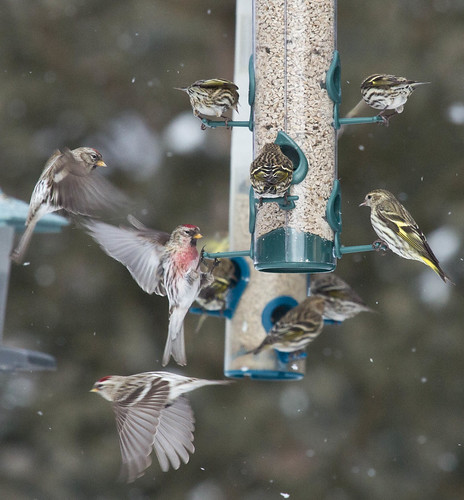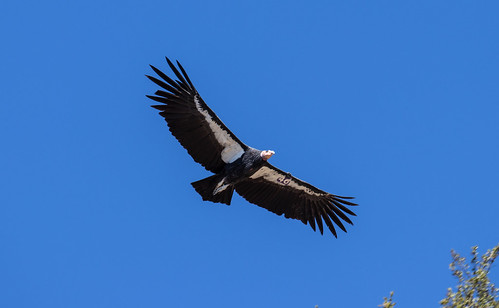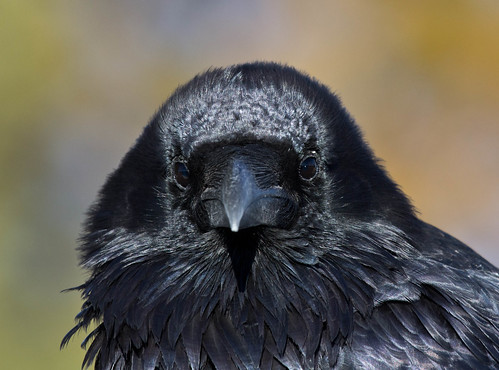We’re in the midst of a major irruption of finches into southern and central states where these northern birds seldom venture in very large numbers. Up here, huge numbers of finches may visit our feeders in January and February without harming the birds—it’s usually not until March and especially April, when we have more frequent thaws, that contaminated food becomes a problem and birds start contracting salmonella, botulism, and other diseases.
Finches have no concept whatsoever of social distancing. Many feed on the ground directly below feeders, picking up food items dropped from above. If one of those birds above is infected, food it mouthed may be eaten by one of those ground-feeders. And when seed sits on the ground for days or weeks, germs flourish, especially when temperatures rise above freezing. So people in Central and Southern states who had been reporting thrilling numbers of siskins earlier are now reporting dead and dying siskins. Raking up seeds below feeders is always important during thaws, and it’s especially critical when large numbers of birds are feeding together. When a sick bird turns up at a feeder, cleanup is already too late—at that point, closing down the feeding station entirely to keep birds from concentrating is the only choice to protect the birds.
In happier news from last summer that I just found out about, scientists at Swansea University in the UK attached data sensors to the wings of Andean Condors (related to the California Condor pictured above) to keep track of every single flap. They discovered that condors flap only about 1 percent of their flight time, and almost all of that during takeoffs and landings. Once aloft, a condor can travel over a hundred miles without flapping once.
New research on bird brains and problem solving has been pretty exciting. Birds lack a neocortex—the area of the mammalian brain where working memory, planning, and problem solving happen. And so for centuries, human scientists, who happen to be mammals with large brains and even larger egos, dismissed the possibility that birds could possibly have excellent memories and the ability to plan and solve problems. Many of them even believed that chickadees, jays, and other birds that cache away food in fall and winter only found that food again via both hiding way more than they needed and sheer luck, though that was disproved many years ago now. But now researchers have found a previously unknown arrangement of microcircuits in the avian brain that may be analogous to the mammalian neocortex. And in a separate study, other researchers have linked this same region to conscious thought. Suddenly it’s big news to people who seemed to be working in a hall of mirrors that birds could possibly be self-aware.
My absolutely favorite news item today is that my friend, the writer, poet, and wildlife ecologist Drew Lanham is the 2020 recipient of the Center for Biological Diversity’s annual E.O. Wilson Award for Outstanding Science in Biodiversity Conservation. Drew is a distinguished professor and master teacher of wildlife ecology at Clemson, where he’s taught courses in woodland ecology, conservation biology, forest biodiversity, wildlife policy, and conservation ornithology and nature writing for 25 years. He’s also the poet laureate of Edgefield County, South Carolina.
Drew was kind enough to record for me his own reading of four poems from his splendid book Sparrow Envy. That program aired in April 2016. In 2020, he wrote a lovely poem, “Life in Hand,” which will appear in the revised and expanded edition of Sparrow Envy this year. Drew and I had a conversation about that which aired on For the Birds in July. Anyway, I’m proud as proud could be to call Drew, the newest recipient of the E.O. Wilson Award my treasured friend. His receiving this well-deserved award is the best kind of news. And good news is something I need right now.





